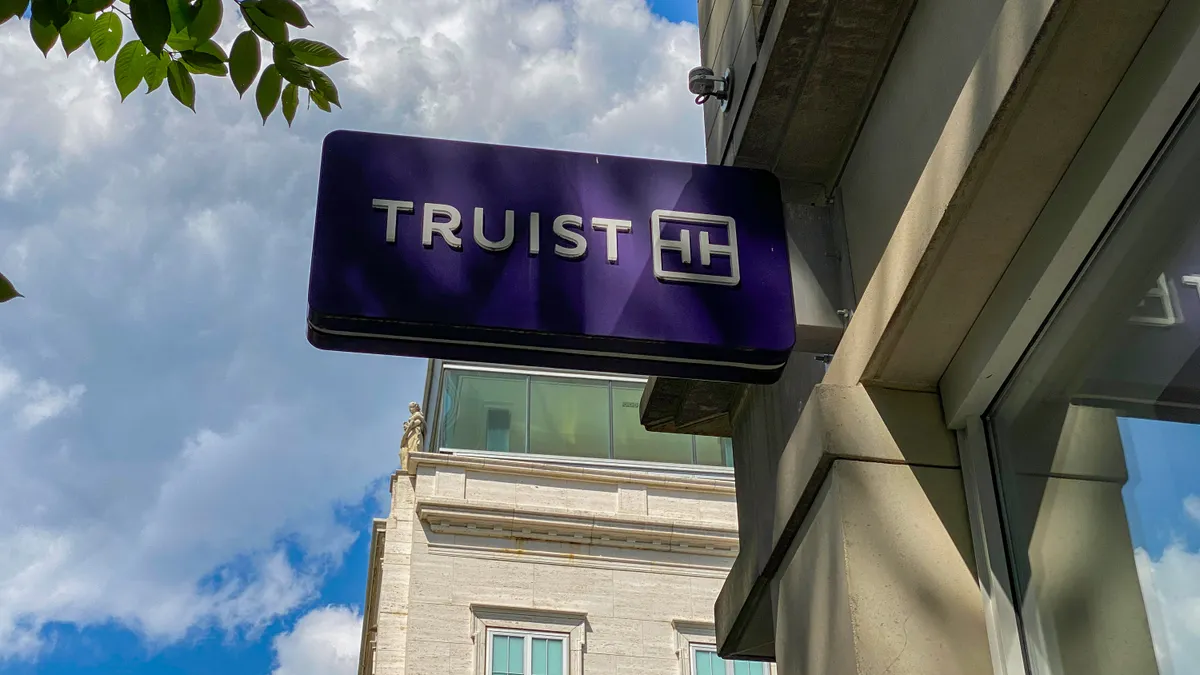For Black-owned Carver Federal Savings Bank, Dream Chasers Capital Group is the investor that won’t go away.
The investment fund exchanged a volley of press releases with Carver last year as the bank announced a change in leadership. Dream Chasers proposed buying 35% of the institution (it held 5.5% at the time) at a premium – calling the move a “hostile takeover.”
Carver, however, rebuffed Dream Chasers’ advances, couching the “adverse publicly disclosed regulatory history of Dream Chasers' leadership” as a “reputational risk” and saying “association” with the investor was “not in the best interest of Carver, its shareholders and its community stakeholders.”
Yet Dream Chasers has persisted. The investment fund sent a letter Monday urging Carver shareholders to vote, at the bank’s Dec. 12 annual meeting, for two Dream Chasers-suggested candidates to take board seats: Jeff Anderson, an 11-year JPMorgan Chase veteran; and Jeffrey John Bailey, Carver’s largest individual shareholder.
Shareholder returns have dropped 79% over the past 10 years – underperforming a comparable S&P banks index by 237%, the investment fund argued. Further, in the same decade, Carver has lost nearly $25 million after taxes and reported just one profitable year, Dream Chasers said.
“The fundamental truth is that no company can fulfill its mission if it is losing money,” Dream Chasers CEO Greg Lewis wrote in Monday’s letter. “This Board has had ten years to produce but has failed miserably.”
Dream Chasers’ letter comes 10 days after Carver itself pushed for shareholders to reelect two board nominees: Kenneth Knuckles, the CEO of the Upper Manhattan Empowerment Development Corp.; and Jillian Joseph, the assistant general counsel at TIAA’s asset-management arm, Nuveen.
This wouldn’t be the first time Dream Chasers has suggested Anderson and Bailey for Carver board seats. The investment fund made the same pitch in July. One difference between then and now is Dream Chasers’ purported stake in Carver: In July, the investor claimed it was around 5.5%. Now that figure stands at 9.7%, Dream Chasers said.
Stake matters in Dream Chasers’ argument. Carver’s seven board members own roughly 0.32% of the institution’s shares. Bailey, by contrast, owns 20 times that, Dream Chasers noted.
“The Board is clearly unaligned with the interests of shareholders and has no incentive to do what is necessary to right the ship,” Lewis wrote.
Carver sold 8% of its shares last year to the National Community Investment Fund for $1 million, or $2.64 per share, Dream Chasers said. Yet, Carver’s shares traded at more than $15 per share in November 2021, the investor argued. (Carver shares closed at $1.63 on Monday.)
Further, Dream Chasers cited a $3 million shortfall Carver reported for fiscal 2024, equating the 8% stock sale to a means of “financ[ing] approximately four months of losses.”
Carver, meanwhile, argued in its Nov. 1 note to shareholders that Anderson and Bailey “lack public board experience and the depth of community banking knowledge required to be a qualified director who can advance [the bank’s] value proposition and mission. Anderson served as CFO of JPMorgan’s retail banking operations in New York, New Jersey and Connecticut, according to LinkedIn, and previously worked at Bank of America and Goldman Sachs. Bailey is the CEO of Dunham Metal Processing.
For Dream Chasers, another difference between July and now is leadership at Carver. The bank’s Nov. 1 note to shareholders, coincidentally or not, came on CEO Donald Felix’s first day in the role.
Dream Chasers bemoaned Felix’s $700,000 annual salary, $500,000 annual cash bonus opportunity and $100,000 annual equity grant. “This is a huge sum of money for a bank with Carver's record of results, and almost all of it is in cash that is not tied to shareholder returns,” Dream Chasers said.
Carver, however, pointed to changes in the bank’s trajectory in the year since longtime CEO Michael Pugh left and interim chief Craig MacKay stepped in.
Interest income jumped 23% in fiscal 2024, the bank said. Assets and loans rose 4% each, and deposits grew by almost 8%, Carver said. Further, it argued, the bank’s $3 million loss was 32% less than its shortfall the previous fiscal year.
Dream Chasers would hardly be the first investor to take a more vocal role in guiding its investment. But it’s difficult to tell which template it’s trying to follow with Carver.
Blue Hill Advisors has taken arguably a similar approach – appealing directly to shareholders in a series of releases, in its pursuit of Hawaii’s Territorial Bancorp. Territorial agreed in April to be acquired by Los Angeles-based Hope Bancorp, but Blue Hill – not an investor, but a competing buyer – made several unsolicited offers for Territorial at a higher price point. Shareholders ultimately backed the Hope deal.
A less aggressive but equally persistent presence, perhaps, is that of Chinese insurance giant Ping An, which for years lobbied HSBC to split its Asia-focused operations from the rest of the bank. It remains to be seen whether the reorganization proposed by new HSBC boss Georges Elhedery will do that – contrary to the bank’s own assurances that it won’t.
Or perhaps Dream Chasers is following the UniCredit model – building up its stake in a bank (in that case, Germany’s Commerzbank) as the market debates the Italian bank’s true intentions. UniCredit CEO Andrea Orcel has called Commerzbank merely “an investment,” but has also supported a full takeover as a likely best option.
Investments can take innumerable forms. Investors can come off as benefactors (see Scotiabank’s purchase of a swath of KeyBank). But board-level power struggles can also push a bank to failure (see, Republic First).
Carver has generally distanced itself from Dream Chasers over the past 15 months. Its Nov. 1 note to shareholders included a link to disciplinary actions the Financial Industry Regulatory Authority has brought against Dream Chasers’ CEO, Lewis.
Dream Chasers, meanwhile, has laid bare what it sees as a more profitable path forward: establishing a broker-dealer to broaden Carver’s wealth options and revamping its marketing and tech to grow its customer base.
It remains to be seen what Carver’s shareholders will do next month. Whether they’re swayed by Dream Chasers or they continue as they have, one thing is certain, considering that Felix’s tenure is just starting: Whatever path Carver takes from here will have at least some element of freshness.





















